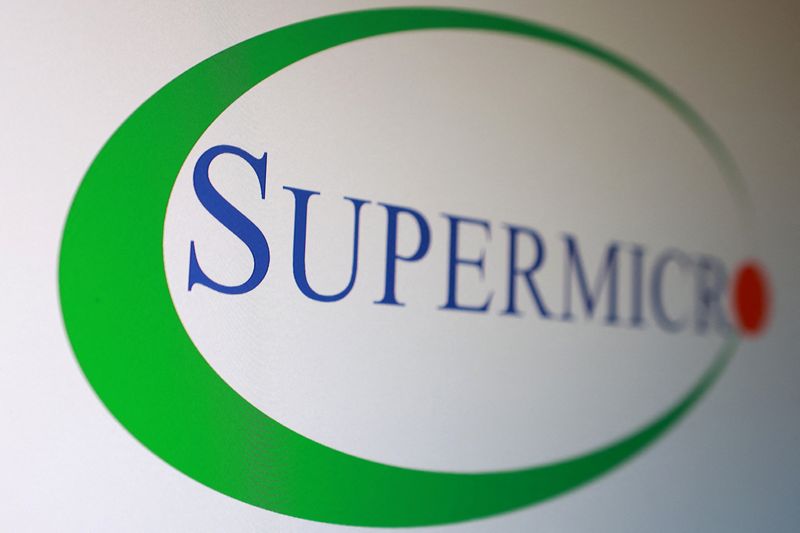SoFi shares rise as record revenue, member growth drive strong Q3 results
Investing.com -- Super Micro Computer shares fell sharply Wednesday after reporting fiscal fourth-quarter results that missed expectations, with analysts divided on the outlook.
The stock is down more than 18% at around $46.80 per share.
The company cited capital constraints and delayed customer orders as key reasons for the revenue and earnings shortfall.
Gross margin came in at 9.5%, below guidance, and the company expects flat margins next quarter despite higher revenue.
SMCI also guided first-quarter revenue of around $6.5 billion and full-year fiscal 2026 revenue of at least $33 billion, above Wall Street’s $30 billion forecast.
Following the report, Rosenblatt kept a Buy rating on the stock, pointing to SMCI’s speed to market with new products as a key strength.
It highlighted the firm’s Data Center Building Block Solutions (DCBBS) and leadership in liquid cooling with DLC-2 as drivers of future gross margin expansion.
“We see Supermicro as the liquid cooling market leader with DLC-2. The combination of DCBBS and DLC-2 should result in gross margin expansion,” Rosenblatt wrote.
Meanwhile, Barclays (LON:BARC) remained Equal Weight, citing near-term risks despite strong full-year revenue guidance.
It noted, “uncertainty around AI server builds remains,” and pointed to flat margin expectations and production ramp challenges. However, Barclays raised its price target to $45 from $29, expecting the DCBBS solution to lift market share and profitability over time.
Bank of America maintained its opposing view to Rosenblatt, reiterating an Underperform rating and warning that margin pressure may persist.
The bank stated that the AI server market is becoming increasingly competitive, with rivals such as Dell (NYSE:DELL) gaining market share.
It also flagged ongoing customer delays as buyers wait for newer GPUs like NVIDIA’s GB300. “Working capital needs remain, we see FCF challenged,” BofA added, raising its price target slightly to $37 from $35.
Additionally, BofA expects margin pressure to persist in the near term.
